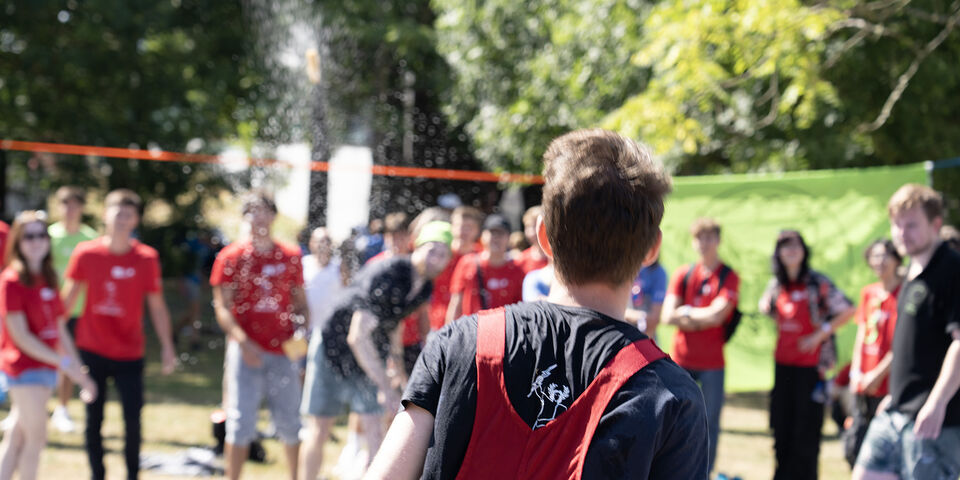What stands out this year are the large intro groups of study association GEWIS, for Computer Science and Mathematics. Some groups have as many as sixteen kiddo’s, and on average the moms and dads are looking after fifteen students. According to Jarmo Boer, member of GEWIS’ Intro Committee, the shortage can be traced back to the pandemic.
“The COVID generation is now in their fifth year. Normally, this is the cohort that delivers the most intro moms and dads. This year, we have none at all from that group.” Boer himself was once an intro parent: back in 2022, he guided a group of nine students.
Alarm bell
Industria, the study association of Industrial Engineering, divided its 280 kiddo’s across 24 groups. In June, Industria sounded the alarm in Cursor: “A big challenge is still finding enough parents. The deadline is Friday, and we’re messaging everyone we know,” said Jasmijn van Heck at the time.
Now, she tells us over the phone, the problem resolved itself. “There were a hundred fewer registrations than expected, which also meant we needed fewer moms and dads.” This Intro, 48 intro parents are active at Industria.
The ideal situation
“The TU/e’s aim is to form intro groups of ten to twelve students, guided by two intro parents,” explains Koen van den Berk. As a CIC member, he is responsible for coordinating the intro groups. “At Pattern, the study association of Data Science, and at GEWIS, there is indeed a shortage.”
But he also knows that some departments receive more intro parent registrations than they can use. “That’s the case at CHEOPS of Built Environment, Protagoras of Biomedical Engineering, and Intermate of Innovation Sciences. They even had to draw lots there.”
Shy students blossoming
Japie, the nickname of the study association of Chemical Engineering and Chemistry, also has fewer intro parents than desired. “Their preference is to have a maximum of eight students per two parents, but this year that wasn’t possible,” says Van den Berk. “The enthusiasm is declining, and that’s really a pity. Larger groups are harder to guide.”
Van den Berk knows from personal experience what makes being an intro parent so rewarding. “It’s wonderful to see how shy first-year students blossom during Intro, and you also build a bond with them very quickly.” He sincerely hopes that today’s intro participants will, in turn, guide new students in the future.
This article was translated using AI-assisted tools and reviewed by an editor.


Discussion